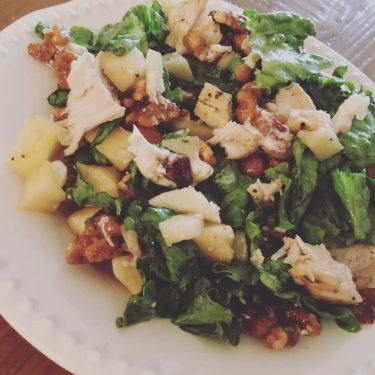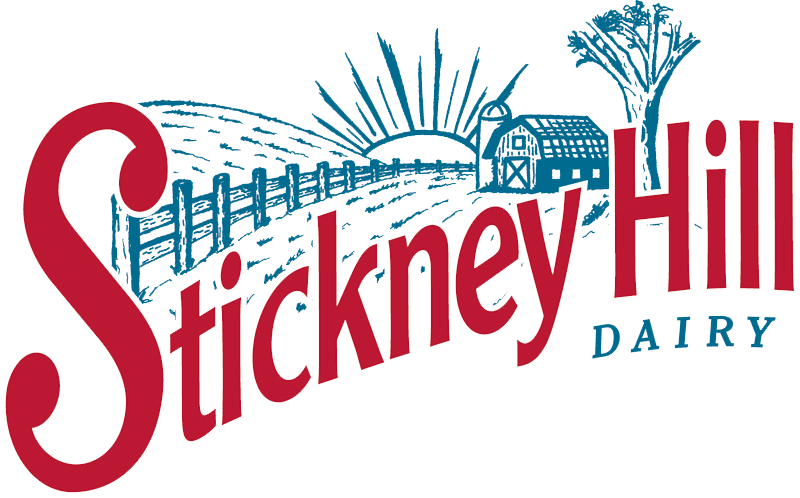Dr. Stacey Bell recently did a study of the Health Benefits of Goat Cheese and Goat Milk. Proving the great thingswe have already known! The science behind goat products. See more information on Dr. Stacey Bell. Please contact us for more information,
Nutrients: large and small
Large nutrients: protein, carbohydrates, fats
Small nutrients: minerals, vitamins, other
Large nutrients: protein
- Excellent protein quality: right mix of amino acids (essential and non-essential)
- Time-released protein
- 80% casein: slow releasing
- 20% whey: fast releasing
- Benefit: muscles and every cell in the body gets the benefits over several hours and nothing is wasted
- Excellent digestion: > 97%
- Highest amount of branched-chain amino acids (BCAA) of all proteins, especially leucine
- Leucine is 70 mg/gram; much higher than soy protein but like other milks (cow, camel)
- BCAA = 26%, which is highest of all proteins
- Promote tissue growth, repair
- Prevent catabolic actions during exercise
- Highest amount of cysteine
- Enhance glutathione levels, which is a strong antioxidant
- Goat milk has more essential amino acids than cow’s milk (Kumar)
- Essential amino acids are used by the body and promote satiety leading to weight loss
- Five principal proteins in goat milk (αS1-CN, αS2- CN, β-CN, β-LG, and α-LA)
- Goat milk proteins are similar to cow milk proteins in:
- α-, β-, κ-caseins, β-lactoglobulin, α-lactalbumin
- However, differ widely in other genetic polymorphisms
- Goat milk has the αs1-casein trait and has six different sub-types: A, B, C, E, F and “null” in goat milk.
- Goat milk has the genetic trait of low (less reactive in the body) or no αs1-casein, but instead has αs2-casein

Large nutrients: Carbohydrate
- Most people can tolerate 11 grams of lactose, even if they have lactose-intolerance, if the lactose is spread out during the day
- Lactose in goat milk: benefits
- Relatively low sweetening power, calorific value, and glycemic index.
- Has dietary fiber-like and prebiotic properties
- Enhances the absorption of calcium and magnesium.
- Low ability to cause tooth decay
- Has derivatives (lactulose, lactitol and galacto-oligosaccharides) that are prebiotics to promote gut health
- “A prebiotic is defined as ‘‘a non-digestible food ingredient that beneficially affects the host by selectively stimulating the growth and/or activity of one or a limited number of bacteria in the colon, and thus improves host health.”
- Lactose is generally not regarded as a nondigestible food, unless the lactase activity is too low to fully degrade lactose in the small intestine
- The remaining lactose continues to the colon where it is fermented by the colonic microbiota and lactate, short-chain fatty acids (SCFAs) and gas (CO2, H2, and CH4) are formed.
- In this case, lactose may be considered as a prebiotic, if the amount is not so large that it can cause negative effects.” (Grenov)
Large nutrients: Fat
- Rich in short-chain fats (MCTs [medium-chain triglycerides])
- Not able to be stored by the body
- Excellent, fatty flavor (mouth-feel)
- Diet food: tastes good but calories are burned right away and not stored
- Coconut oil is touted for weight loss (it has MCTs)
- Also has short-chain fats that are easily accessed by the body to burn for energy
- Higher content than cow’s milk for: short chain, medium chain, mono and polyunsaturated fatty acids
- Contains small fat globules, considered “naturally-homogenized” (Jirillo)
- Higher percentage of essential fats compared to cow’s milk
Other Attributes

- Neutral pH
- 6.5, neutral
- Easy on the stomach and digestive system
Strengthen immune system
–Support healthy immune system
-Reduce inflammatory response
Goat milk and the immune system
- Immune balance
- Goat milk causes immune cells to release of some pro-inflammatory (TNF-alpha and IL-6) and anti-inflammatory (IL-10) cytokines
- Suggests the ability to maintain immune homeostasis in the immunocompromised host (e.g., aged people).
- Related benefit: heart health
- The capacity for immune cells to produce nitric oxide (NO)
- May exert a cardioprotective and anti-atherogenic effect
- Triggers immune responses (innate and adaptive) in the blood but not in an aggressive way
- In immune cells (monocytes), lessening of immune response in response to external stimulus (an endotoxin)
- In the GI tract, which houses most of the body’s immune cells
- Goat milk has its own microbiota, which may normalize the human intestinal microbiota, leading to many protective effects at intestinal cell level
- Goat milk is a good anti-inflammation beverage for the elderly
- No increase in inflammatory cytokines (e.g., IL-10, TNF)
- Decrease in other inflammatory cytokines (i.e., IL-6 and 8)
- “Goat’s milk should be recommended as a dietary supplement in individuals with inflammatory and allergic conditions, even including elderly people.” (Jirillo)
- Goat lactoferrin
- Abundant glycoprotein in milk
- Goat milk has lactoferrin in equal amounts to cow’s milk (about 0.02-0.2 mg/mL), but both have 10-100 times less than than human milk
- Lactoferrin exhibits an array of biological activities, including:
- Antioxidant, antibacterial, antiviral activities, iron- (and other metals) binding and immunomodulation
- From goat, offer intestinal, microbiotic protection and support growth of bifida bacteria (healthy probiotics) (Le Parc)
- Glycans (sugars) mediate lactoferrin’s bioactivity
- Mostly appear as N-glycans (sugar + nitrogen)
- Composition of goat N-glycans
- 37% were sialylated, which are important
- Protect against rotavirus infection, which is a main pathogen causing infant diarrhea
- 34% were fucosylated, which are important
- Involve in pathogen inhibition
- Exert prebiotic activity by promoting the growth of healthy bacteria associated with beneficial functions in the GI tract
- Support growth of some bifidobacteria
- Contain enzymes that hydrolyze the N-glycan core
- Goat milk and human milk have a significant degree of similarity for N-glycans, but not for cow milk and human milk
- Goat milk lactoferrin may better mimic the functional properties of human milk lactoferrin and therefore be an improvement over bovine milk lactoferrin
- New opportunity to use as a functional ingredient in dietary supplements
Lower allergenicity

Less likely to be allergic to goat milk than cow’s milk
Allergies: casein
- Unique casein in goat milk
- Goat milk has none or less of the A1 casein that is found in cow’s milk
- Now there are big sales of A2 Milk, cow milk lacking the A1 casein
- Cows are segregated to only produce A2 casein
- Goats naturally have none or don’t have as much A1 casein
- Getting rid of A1 casein is good for health
- Better digestion, because of softer curds
- Associated with a lower incidence of heart disease and type 1 diabetes
- May be associated with less severe symptoms of autism and schizophrenia
- Some individuals can’t digest lactose in cow’s milk
- Lactose intolerance is not a true allergy, but a side effect of mal- absorption
- The ability to absorb lactose has been shown to be related to the specific casein fraction in the milk
- Absorption of milk and reduced digestive issues are associated with casein in the A2 form
- Goats have this only as sub-set of cows have A2
- The casein fraction, A1, is non-existent or much lower in casein of goats, as compared to cow’s casein
